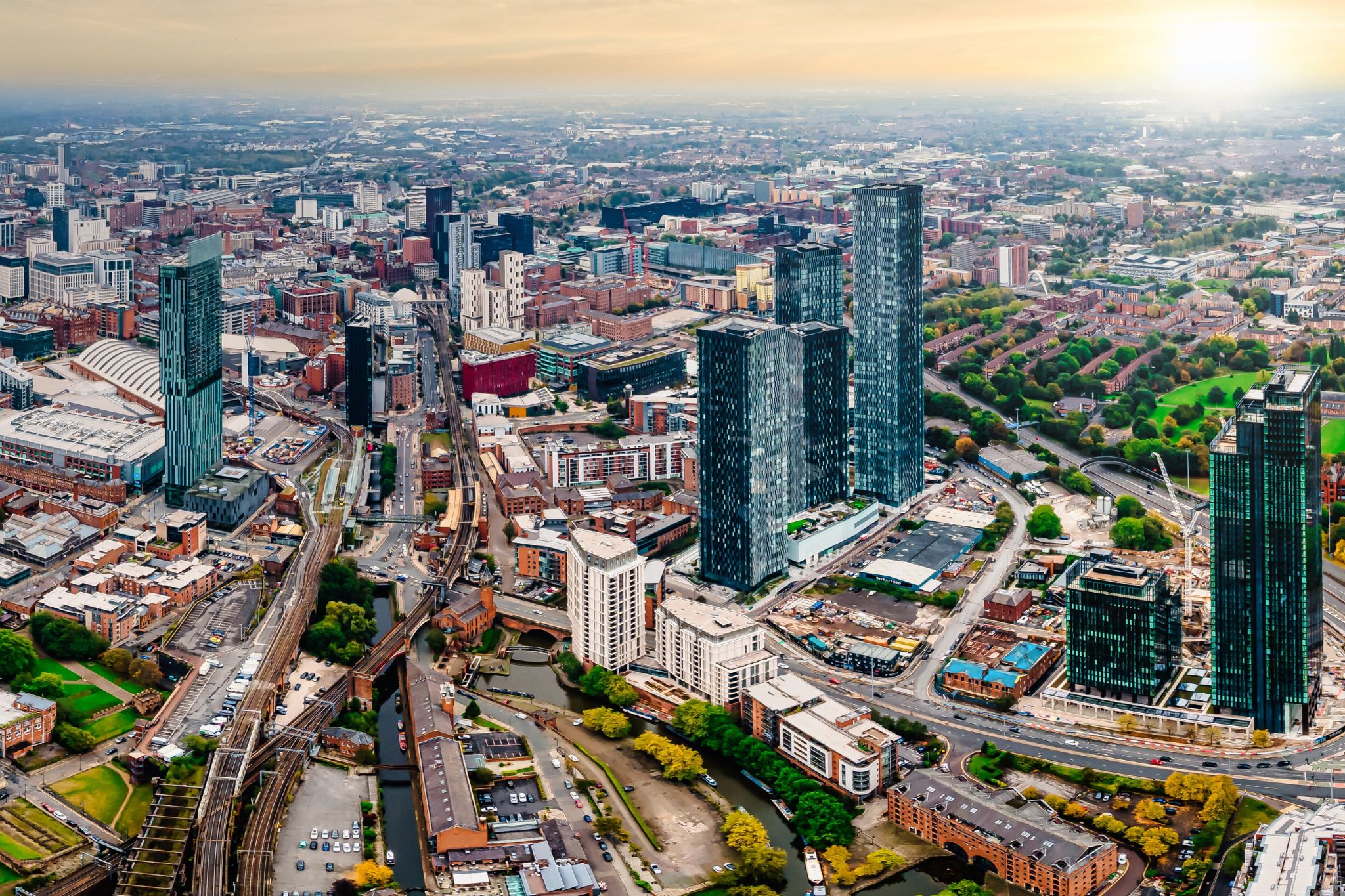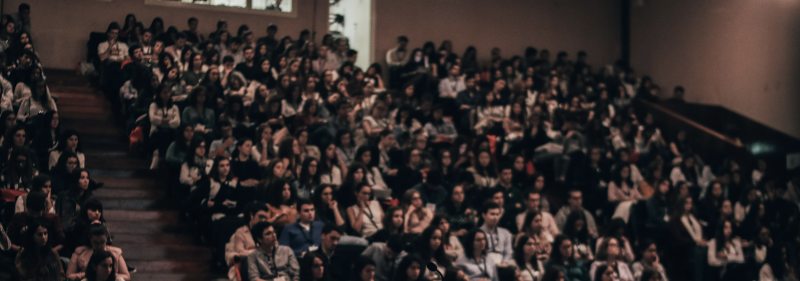 The fact that the latest anti-racism protests are taking place amidst a pandemic – and in the case of the UK have been triggered by events across the Atlantic rather than at home – might result in more sustained attention being paid to inequality and racism, writes Tim Newburn.
The fact that the latest anti-racism protests are taking place amidst a pandemic – and in the case of the UK have been triggered by events across the Atlantic rather than at home – might result in more sustained attention being paid to inequality and racism, writes Tim Newburn.
The last few weeks have seen a remarkable series of protests on the streets of the UK. The gatherings, which have been widespread and often sizeable, were stimulated by events in America rather than at home. The protests have been all the more remarkable for the fact that we live in times of great restriction on movement and assembly. As things stand, those who can are still working from home. Wherever possible people are avoiding public transport. Social interaction is very limited; even recent easing of restrictions only allows for small ‘bubbles’ with selected others.
Under such circumstances, mass gatherings are potentially profoundly deviant acts. They go so much against the grain that it takes something seismic to bring them about. Which brings us to events that began in Minneapolis three weeks ago. On 25 May, George Floyd, a 46-year old African-American man died as a result of a violently aggressive arrest by four police officers. It was captured on camera, the film showing one of the officers kneeling on Floyd’s neck for nearly nine minutes. Both the official autopsy and a private one commissioned by his family described his death as ‘homicide’.
Sadly, this was far from an unusual occurrence. It was only the latest in a long line of high profile cases in which Black men, women, and children have been killed by police officers in America: the list is horribly extensive and includes Trayvon Martin, Michael Brown, Eric Garner, Tamir Rice, Freddie Gray and earlier this year, Breonna Taylor. Not least as a consequence of the #BlackLivesMatter movement, many of these names are now known around the world.
The reaction in America to George Floyd’s death has been quite unlike anything seen since the civil rights movement and the urban uprisings of the 1960s. In the space of a few weeks, scores and scores of US cities have seen mass protests, sometimes daily, generally multicultural, mainly peaceful, but occasionally turning into riots. A movement to ‘defund the police’ has grown very substantially, and has already had a considerable impact, not least in the decision by Minneapolis’s city council to disband its Police Department. President Trump has even been moved to promise police reform.
The resonance of these events has been truly international, with the reach of #BlackLivesMatter straddling the globe. The weekend of 6/7 June saw marches, demonstrations and protests across the globe. The unfolding of the protests in the UK in particular has been revealing in a number of ways. First and most obviously, the scale of the protests here – from Brighton on the south coast up to Edinburgh and across to Cardiff and Belfast – and the fact that the protests are ongoing, has demonstrated just how the issues raised in Minnesota reverberate strongly and deeply closer to home.
Second, by and large the #BLM marches in Britain have also been multi-racial, well-organised, and peaceful. There was some violence in London on the initial weekend of protests, but much of it occurred late in the day, and was far from extensive. Though there were some criticisms of police action, in the main a facilitative, de-escalatory approach seems to have predominated. In a very positive development, some officers were even filmed taking the knee.
Third, and against a backdrop of demonstrations regularly being suppressed and ignored, these protests have already been consequential. This can perhaps most obviously be seen in the impact of the forced removal of the statue of Edward Colston in Bristol. Without Colston’s memorial being dumped in Bristol’s harbour, it is unlikely that pressure for the removal of other reminders of Britain’s history of slavery and violent colonialism would have been nearly as great as has proved to be the case.
Fourth, the political reaction to the protests, though far from uniformly positive, appears not to have been characterised by the degree of divisiveness that has been found in much British public life since the Brexit arguments began. Yes, there has been political criticism, and there was a backlash with a counter-demonstration to the anticipated #BLM protests in London. In the event, however, the representatives of Britain First, the Democratic Football Lads Alliance, and their fellow travellers on the far right, were met only by the Metropolitan Police, the original marches having been called off in order to avoid conflict on the streets. The violence that ensued, and the actions of one of the young protesters photographed urinating next to the memorial dedicated to PC Keith Palmer, did little to enhance the legitimacy of those who had come to the capital in name ‘protecting statues’.
Finally, but importantly, coronavirus and its consequences are deeply inscribed in these protests and help in some ways to explain why the original demonstrations in Minneapolis travelled as far and as fast as they did. Of course, the experience of racism in policing, and of police brutality, is far from confined to America and it was undoubtedly highly negative experiences of policing that drew many out on to the streets of Britain’s cities. But the pandemic also played a signal role, not least in the ways it has drawn attention to structural inequality, and racial inequality more particularly. The impact of the virus itself, the response of government, and the manner in which behavioural restrictions have been enforced, have all focused attention on inequality and racism. The facts are stark.
Very straightforwardly, ethnic minorities in Britain have lost their lives at a far higher rate than majority white populations. An analysis by the Office for National Statistics showed that, when taking age into account, Black males were 4.2 times more likely to die from a COVID-19-related death than White males. Because of poverty and discrimination the economic consequences of the pandemic have hit ethnic minorities much harder than other groups. And though the disparities aren’t quite as extreme, an analysis of penalties imposed under the coronavirus rules shows that those from BAME backgrounds were over 50% more likely to be fined than white people.
In the United States, similar patterns can be found. Although the Center for Disease Control was careful to acknowledge that it currently has limited information, it acknowledged that data in the US suggest ‘a disproportionate burden and illness and death [from coronavirus] among racial and ethnic minority groups’. In a country in which over 40 million people were dependent on foodbanks prior to the pandemic, and which experienced 20 million job losses in April alone, the latest police outrages have occurred in a context of especially heightened consciousness of social and economic injustice. How significant will change be? All too often, even sizeable protests that appear to promise much eventually peter out and produce little of lasting consequence. The continuing presence and terrible consequences of the pandemic might just make the difference this time.
___________________
 Tim Newburn is Professor of Criminology and Social Policy at the LSE.
Tim Newburn is Professor of Criminology and Social Policy at the LSE.
All articles posted on this blog give the views of the author(s), and not the position of LSE British Politics and Policy, nor of the London School of Economics and Political Science. Featured image credit: by LOGAN WEAVER on Unsplash.






